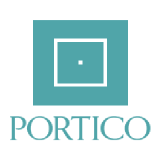fig1

Figure 1. Schematic representation of the main characteristics of the Western diet and Mediterranean patterns that influence the risk of colorectal and breast cancers. Western diets are generally richer in fat, single sugars, processed foods, and red meat and have been associated with higher intakes of ethanol and xenobiotics derived from food processing. Ethanol can be metabolized to acetaldehyde, which impairs antioxidant defence systems and DNA synthesis and repair mechanisms of the host, and interferes with oestrogen-metabolising enzymes and potentiates aromatase activity in the liver, thus increasing circulating free oestrogens. Xenobiotics have mutagenic, genotoxic, and cytotoxic potential. Mediterranean diet is characterized by higher consumption of vegetables, fruits, legumes, extra virgin olive oil, nuts, fish, and whole grains, which lead to a higher intake of polyphenols and fibres that decrease exposure to carcinogens by diverse mechanisms. Figure created with BioRender.com.









